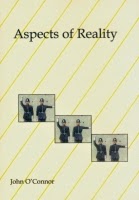No
rough verses, but like a surf‐tossed sailor
wielding
wisely his gaff‐rigged fore‐and‐aft sail,
so
shall I keep your favourite of Greek metres
to
steer my way free of your storm of curses.
What
I owe you – these claims you make are madness –
but
to counter them one by one in order:
first,
consider, what we owe Aphrodite –
your
voyage here, as plunder of my husband,
your
change of plans, your brother left unaided,
none
of this can be laid as charges on me,
all
was fated, and I merely received you.
Oh,
I loved you, and being loved by me did
you
not take more than you could ever give me?
Your
‘exile’ here – to live in Rome is living,
I
don’t see you, in thrall to me no longer,
rushing
back to your farmhouse in Verona, or
setting
sail to do business in Bithynia.
Had
you stayed put, a poet of the provinces,
not
one person would know your name – or care to.
'No rough verses' is from Anna Jackson's about-to-be-published sixth collection of poetry, I, Clodia, and Other Portraits (Auckland University Press). More specifically, it's from the first section of that book, a long a sequence of poems - 'I, Clodia' - which takes as its subject and narrator one Clodia Metelli, an ancient Roman woman who was (almost certainly) the lover of the poet Catullus.
I didn't know much about Catullus or his poetry - which doesn't take away from the enjoyment of the sequence as far as I'm concerned (it contains everything you need to know to in the way of facts). But if you know anything much about Catullus, you'll know that he wrote a celebrated series of poems to his lover 'Lesbia' (Clodia), many of which were in reply to her poems. But his poems have survived, while hers (like a lot of women's history) are lost to us. One of the things Anna is doing in this ambitious work is to reconstruct the woman's side of this story, and to breathe life into the vibrant, quick-witted, not always likeable but rather admirable character of Clodia. As the AUP blurb says 'Jackson honours and subverts her source material in lines that are a marvel of ventriloquism.'
It was difficult to decide which poem from this sequence to share, partly because they are written to be read together. I chose this one because I think it can stand alone, but also because I'm really drawn to the strong rhythm, which I especially noticed in the first lines - don't you just feel like you're being tossed about by the waves, 'like a surf-tossed sailor'? Like several poems in this sequence that use tight forms and metre, this one is in hendecasyllables, which Anna tells me was one that the Romans adapted from the Greeks, and which was the form Catullus used most often. In English it isn't a flowing, natural rhythm, like iambic pentametre, which makes it well-suited to this boat lurching, to this proud, hurt narrator spitting out her bitterness at her lover, with whom she has such an up and down (and up and down) relationship.
Anna also let me know that this poem borrows from the play Medea, by Greek playwright Euripides, where Jason (of the golden fleece) tries to justify his abandonment of Medea (his wife, who had helped him nick the golden fleece). While not necessary to know, it adds another layer of richness to the poem. And these are really rich poems, which are just crying out for in-depth study.
I, Clodia fits with my strong interest in both narrative poetry and biographical poetry. The second half of this new collection continues with an interest in portraiture, but with shorter, more 'modern' poems, including some of my favourites of Anna's recent work, such as 'Sabina, and the chain of friendship' and the 'Pretty Photographer' poems. And some poems I haven't read yet, and which I'm rather excited about meeting.
For more Tuesday poems, check out the sidebar on the left.
Anna Jackson teaches English at Victoria University of Wellington. Her sixth collection of poetry, I, Clodia, and Other Portraits, will be launched in November. Two of her previous collections, Thicket (2011) and The Pastoral Kitchen (2001), were shortlisted for the New Zealand Book Awards. She has also published short fiction and academic books, and is part of the team (along with me) that is organising Truth or Beauty, Poetry and Biography - a conference about biographical poetry - in November.
This week's editor, Helen Rickerby, is a poet and publisher from Wellington. She has published four collections of poetry – her most recent, Cinema, was published by Mākaro Press in March. She runs Seraph Press, a boutique publishing company with a growing reputation for publishing high-quality poetry books, and she is co-managing editor of JAAM literary journal. She blogs irregularly at wingedink.blogspot.com and has a day job as a web editor.




